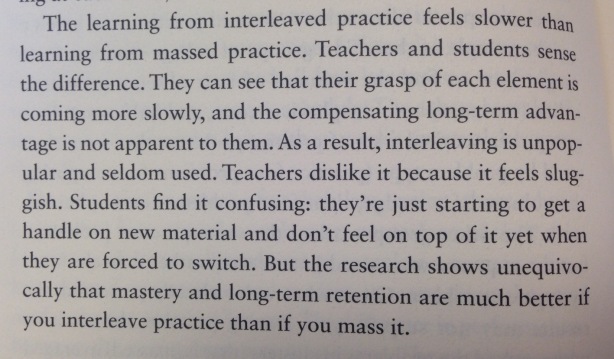My school has developed a system of monitoring which is the best I’ve ever experienced or seen in a school. It’s not perfect but is the most efficient and effective model I’ve seen. As a leader, whilst it takes time, it is a part of my job I enjoy because it means I’m engaging with my department’s core work; the teaching and learning of our students
Why monitoring is a good thing
In most jobs there is a minimum expectation of staff; the things they’re employed to do that contribute to them fulfilling their role. Monitoring is the process of checking these are being done.
Whilst many people do this badly, there are some benefits to doing it well:
- It values people’s work
- It gives an opportunity to discuss ideas
- It ensures the leader is engaging with colleagues
- It promotes consistency within departments and across the school
- It gives an overall picture of teaching and learning across the school without the need for grades
- It’s relatively quick, efficient and fair
If you’ve read thus far and thought ‘this is a load of rubbish’, there’s a good chance that you’ve experienced one or more of the following:
Why many schools get it wrong
They do it for the wrong reasons
Getting any teacher to do something for Ofsted is wrong. Doing it for the Governors is wrong.
It takes too long or time isn’t given to staff to complete it
If it’s important then staff will be given time to do it. Consider that whole staff meeting where staff were talked at for an hour about something that could have fitted into an email. Just think what a leader could have done to work with colleagues in this time.
It’s inconsistent.
“My head of department doesn’t do that”
“I hope I get Mr X watching my lesson, he’s nice”
Phrases that undermine an effective system.
It’s done by the ‘wrong’ person
The best model is the for the teacher and their direct line manager to engage in this. SLT should be monitoring the monitoring not doing the monitoring (unless they’re the line manager).
Staff complete paperwork/ do things to meet the system instead of the system being used to analyse what is being done anyway
If staff are spending hours preparing for monitoring rather than preparing for teaching there’s something seriously wrong with your system.
It allocates grades
Why? Why do people grade their teachers? One answer, “for a spreadsheet to ‘show’ Ofsted”. Utter nonsense.
It’s too subjective
When discussing the ‘quality’ of something, personal opinion will always come in. An effective system will remove that as much as possible. ‘Has it been done or not?’ makes things more objective.
The wrong things are looked at
Is there any point looking at planning if what is being delivered bears no resemblance? Is it worth observing someone for 20 minutes with a class they see once and fortnight?
They’re irregular/infrequent
Put them on a calendar and stick to them. SLT monitoring should be checking this. A teacher should know when it is happening; no ‘gotcha’ moments.
The policies are inefficient, over complicated and unreasonable
This is where most of you that think monitoring is not a good thing will probably have the issue.
- Your marking policy is unworkable.
- You teach RE and teach 600 students.
- Your feedback requires you to write more than the student did in the first place.
- You’re required to enter data onto a spreadsheet twice a half term.
- You have to hand in your planning a week in advance (when you won’t even know if the students will have covered the previous work).
- You are observed and have to prove that students have made progress in 20 minutes.
- Every teacher is expected to everything the same way even though their subject is completely different
These are why monitoring isn’t valued in by many teachers. Policies written by people who’ve forgotten what it’s really like to teach 18 classes or never have done.
Monitoring is really important in a school. If done well it contributes to teacher development, if done badly, it’s a reason why many teachers leave a school and for some, leave the profession.




